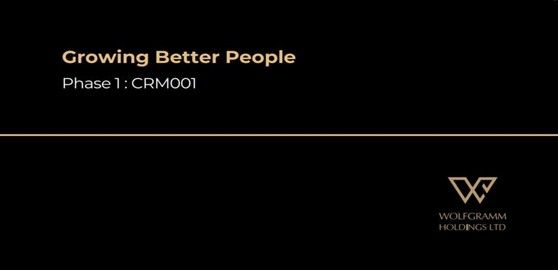Honouring Te Tiriti in Your Workplace
Honouring Te Tiriti in Your Workplace

Honouring Te Tiriti o Waitangi in the workplace is more than just a gesture of cultural acknowledgment---it is a transformative opportunity for organisations in Aotearoa New Zealand to lead with integrity, inclusivity, and respect for the nation's foundational partnership. Te Tiriti o Waitangi, often referred to as New Zealand's founding document, embodies principles that guide equitable relationships between Māori and non-Māori people. By embracing these principles---such as partnership, equity, and active protection---organisations can create workplaces that celebrate the richness of te ao Māori (the Māori worldview) while fostering a culture of innovation, collaboration, and mutual respect.
In today's diverse and interconnected world, honouring Te Tiriti is not just a moral imperative but a strategic advantage. It allows organisations to deepen their engagement with Māori communities, enhance cultural competency among staff, and drive meaningful outcomes that benefit all stakeholders. This commitment goes beyond symbolic gestures; it requires thoughtful action, ongoing education, and a willingness to challenge and transform existing systems to reflect the values of Te Tiriti.
Whether your organisation is at the beginning of its journey or seeking to deepen its commitment, understanding how to honour Te Tiriti in practical ways is essential. From developing robust Te Tiriti policies to embedding its principles into governance structures, co-designing with Māori, and integrating mātauranga Māori (Māori knowledge) into everyday operations, there are numerous ways to create lasting change.
This article explores actionable strategies for organisations to genuinely honour Te Tiriti o Waitangi. We delve into policy development, co-governance frameworks, cultural competency training, and the integration of core Māori values, offering a roadmap for building meaningful relationships and fostering inclusivity. By taking these steps, your organisation can not only fulfil its Te Tiriti obligations but also lead the way in promoting a fairer and more harmonious society.
Developing a Te Tiriti Policy
To develop an effective Te Tiriti o Waitangi policy, organisations should:
● Ensure the policy is genuine and not just for show, based on a thorough understanding of Te Tiriti\'s principles and implications.
● Align the policy with the five principles derived from the Waitangi Tribunal\'s Wai 2575 Health Services and Outcomes Inquiry: self-determination, partnership, equity, active protection, and options.
● Create an implementation plan that embeds Te Tiriti principles into all aspects of the organisation\'s work, including reviewing existing policies and procedures.
● Provide opportunities and resources for staff to upskill in their knowledge and application of Te Tiriti, including learning about the organisation\'s connection to mana whenua.
● Regularly review and update the policy to reflect the latest understanding of Te Tiriti and maintain relevance with stakeholders.
A well-crafted Te Tiriti policy should be a living document that evolves with the organisation\'s growing maturity in honouring Te Tiriti obligations.
It should guide the organisation in striving for excellence in enacting Te Tiriti partnership in all its activities, both internally and in external relationships.
Co-Designing Policies with Māori
Co-designing policies with Māori is a collaborative approach that recognizes Māori as Treaty partners and acknowledges their unique perspectives and mātauranga in solving policy challenges.
This process involves early engagement, inclusivity, and broad thinking to develop shared projects and programmes that reflect Māori aspirations.
Key elements of successful co-design include:
● Involving Māori early in council policy and planning processes, beyond mere consultation.
● Building relationships based on goodwill, trust, and mutual respect.
● Ensuring adequate resourcing to sustain engagement processes and build Māori capacity.
● Recognizing Māori communities as net contributors to society\'s well being and enrichment.
● Allowing for changes in how policy, procurement, and services are currently configured to accommodate co-design outcomes.
Effective co-design requires a shift in power dynamics, creating time and space for learning, reciprocity, and shared decision-making.
While the potential of co-design is promising, ongoing work is needed to close the gap between intent and implementation, ensuring that it doesn\'t become a euphemism for consultation without genuine partnership.
Embedding Te Tiriti in Co Governance
To embed Te Tiriti o Waitangi in governance structures, organizations can adopt co-governance models that reflect the power-sharing commitments of the treaty.
This often involves establishing equitable decision-making power for both tangata whenua and tangata Tiriti at the board level, including the appointment of co-chairs.
Some key approaches include:
● Implementing a \"Two House\" model where tangata whenua and tangata Tiriti consider issues separately before coming together to make decisions based on shared understanding.
● Documenting processes for decision-making, internal communication, and dispute resolution that honour Te Tiriti relationships.
● Incorporating Te Tiriti principles into the organization\'s constitution or creating specific policies that enable co-governance opportunities.
● Regularly reviewing governance structures to ensure they continue to reflect the latest understanding of Te Tiriti and maintain relevance with stakeholders.
By adopting these practices, organizations can create governance frameworks that genuinely honor Te Tiriti o Waitangi and foster meaningful partnerships between Māori and non-Māori in decision-making processes.
Engaging with Local Iwi and Hapū

Engaging with local iwi and hapū is crucial for businesses seeking to honor Te Tiriti o Waitangi and build meaningful partnerships.
To foster effective relationships:
● Identify the right iwi organization and key people to work with, observing cultural protocols (tikanga) when initiating contact.
● Develop a clear communication strategy with key messages that acknowledge the value of Māori perspectives.
● Invest time in understanding the unique context of each iwi or hapū, including their specific issues and aspirations.
● Consider formalizing partnerships through agreements like Mana Whakahono ā Rohe, which can enhance Māori participation in decision-making processes.
● Adopt a localism-focused approach to ensure genuine input from iwi and hapū on decisions affecting their future.
By prioritizing these engagement practices, businesses can create enduring partnerships that benefit both the organization and the local Māori community, while demonstrating a commitment to the principles of Te Tiriti o Waitangi.
Establishing Long-Term Iwi Partnerships
Establishing long-term partnerships with iwi requires a commitment to building meaningful relationships based on trust, respect, and mutual benefit.
To foster enduring collaborations:
● Engage early and be inclusive, thinking broadly about potential opportunities for partnership.
● Understand the unique context of each iwi, including their specific issues, aspirations, and cultural values.
● Consider formalizing relationships through memoranda of understanding (MOUs) or partnership agreements.
● Develop shared projects that align with iwi interests, such as sustainable energy initiatives or food and beverage sector partnerships.
● Ensure partnerships foster local benefits, sustainable prosperity, and intergenerational wellbeing for iwi communities.
● Maintain active participation and ongoing communication, rather than becoming passive investors or partners.
By prioritizing these practices, businesses can create enduring partnerships that generate mutual value and demonstrate a genuine commitment to honoring Te Tiriti o Waitangi principles in their operations.
Cultural Competency Training for Leaders

Cultural competency training is essential for staff to effectively engage with te ao Māori and uphold Te Tiriti o Waitangi principles in the workplace. We offer:
● Customized workshops focusing on te reo Māori, the language that embodies the essence of Māori identity, and tikanga, which encompasses the cultural practices and values rooted in kotahitanga principles of leadership. These workshops aim to enhance cultural capability by fostering unity and collective responsibility among staff. We also aim to provide your staff with a deeper understanding of Māori culture and practices through these workshops.
● Interactive Treaty workshops are also available, offering staff insights into Te Tiriti\'s relevance in modern Aotearoa New Zealand. Encouraging staff to learn and use te reo Māori in the workplace, supported by bilingual signage, is another effective strategy.
● Online learning programs, such as Mairangatia used by Ara Poutama Aotearoa, which combine self-directed modules with facilitated group discussions.
By investing in cultural competency training, businesses can create more inclusive workplaces, improve engagement with Māori stakeholders, and ensure authentic storytelling that respects and acknowledges the significance of Māori culture.
Integrating Mātauranga Māori in the Organisation

Integrating Mātauranga Māori practices into the workplace involves embracing core Māori values and principles to create a more inclusive and culturally responsive environment.
Key values to incorporate include:
● Manaakitanga: Showing respect and hospitality towards colleagues and stakeholders.
● Whanaungatanga: Fostering strong relationships and a sense of belonging.
● Kaitiakitanga: Promoting environmental stewardship and sustainable practices.
● Wairuatanga: Acknowledging the spiritual dimension in work activities.
● Auahatanga: Encouraging creativity and innovation.
By adopting these values, organizations can enhance employee wellbeing, increase affective commitment, and promote positive organizational citizenship behaviors. This approach not only benefits Māori staff by allowing them to express their culture and beliefs more freely but also creates a more inclusive workplace for all employees.
Book a call with us to explore how we can work together to make your workplace or business a more inclusive place.